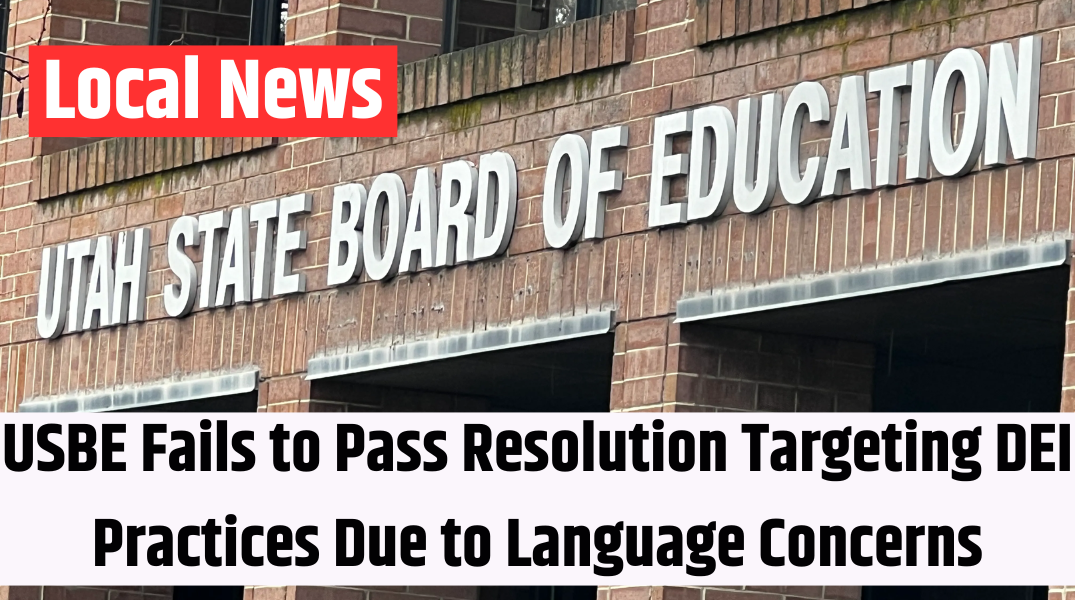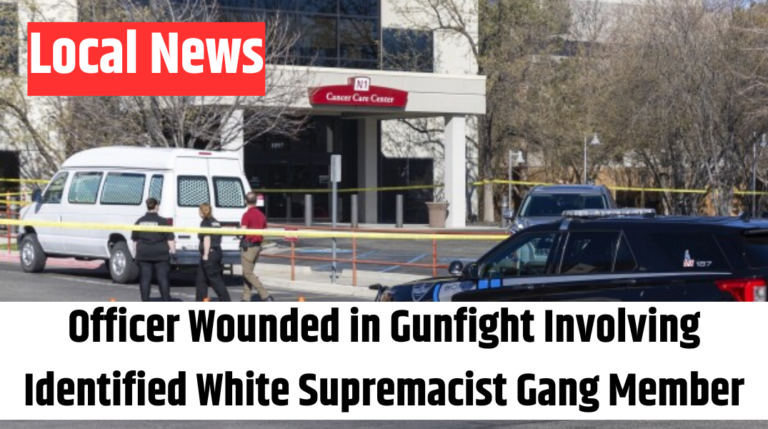
SALT LAKE CITY — A proposed resolution to eliminate remaining Diversity, Equity, and Inclusion (DEI) initiatives in Utah’s public schools was struck down by the Utah State School Board after members failed to find common ground on its wording and possible consequences.
The board voted 10-4 against the resolution, with many members expressing uncertainty over how the proposed changes would impact ongoing programs. Critics cited unclear language and broad implications that could affect initiatives like Latinos in Action or services for students with special needs.
“There has been a flood of feedback from communities across Utah who are deeply concerned about the programs potentially affected by this resolution,” said board member Sarah Reale (D-District 5). “We already have laws in place addressing these issues—we don’t need a resolution that stirs confusion and controversy. There are more pressing matters we should focus on.”
Introduced by board member Christina Boggess (R-District 8), the resolution was intended to reinforce recent legislation passed during the 2024 General Session. However, it sparked widespread criticism for its inflammatory language, including a statement claiming that DEI efforts were aligned with “Soviet Communist goals” and were a vehicle for advancing communism through ethnic minorities.
That language drew sharp criticism from advocacy groups, including a strongly worded letter from Jeanetta Williams, President of the Salt Lake Branch of the NAACP. Williams called the resolution “nonsense,” stating that DEI initiatives in the U.S. have roots in American civil rights history—not communist ideology.
“To suggest otherwise is not only historically inaccurate, but deeply offensive,” Williams wrote. “Passing this resolution would reflect poorly on the state of Utah.”
An amended version of the proposal was presented during the board meeting, which included language aimed at protecting individual rights and clarifying that special education programs would not be affected. Despite those changes, concerns persisted over the resolution’s potential reach and lack of specificity.
Following the failed vote, multiple attempts to delay or revisit the resolution—either at a future meeting or indefinitely—also failed to gain traction. Even a motion to formally respond to the hundreds of concerned messages received by board members was rejected.
With the measure now sidelined, it’s unclear whether the board will attempt to revive or revise the resolution in future sessions. According to a board representative, any future consideration would require significant modifications or a formal vote to revisit the failed motion .




